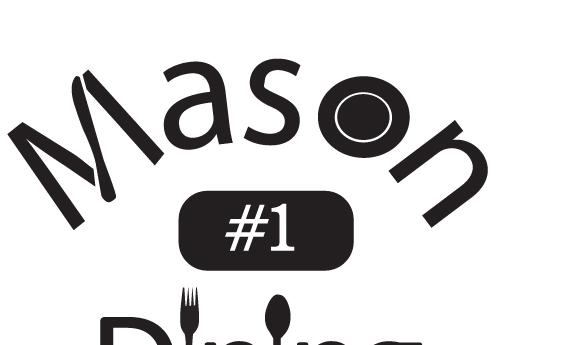Mason Dining seeks new solutions for waste management and sustainability
Mason Dining hosted a meeting on Monday, March 25 to brainstorm ideas with students on the future of local food purchasing and food waste at George Mason University.
Ben McElhaney, Mason Dining’s sustainability coordinator, led the meeting in order to hear suggestions for improving the university's food waste reduction system and continuing sustainability on campus.
The current Southside Food Waste Project uses a pulper, hydro-extractor and dehydrator to turn dining waste into a powdered substance.
Mason Dining previously sold the powdered waste to farmer’s as fertilizer for crops. However, the farmers did not fully understand the power of the fertilizer and ended up killing entire fields of crops. Because of the incident, Mason Dining now throws the lightweight waste out with the trash.
McElhaney said he wants the reduced waste to be sold as fertilizer to a vendor to continue the cycle without simply throwing out the waste. The project is ongoing and Mason Dining is continually seeking suggestions.
“The more brains I get into a room the better,” McElhaney said.
Tyler Orton, the Office of Sustainability’s program innovation coordinator, shifted the discussion to Mason Dining’s participation in organic and third-party certified produce.
According to McElhaney, there is little or no organic produce purchasing within Mason Dining because of organic produce has a higher cost than non-organic. An increase in food cost would inevitably affect the cost of meal plans, which have already gone up from $6.00 to $7.00 over the last year.
According to McElhaney, Mason Dining will occasionally sneak a few organic items into meals, but the costly affect prevents them from purchasing more organic produce.
McElhaney also discussed the not-so-bright future of farmer’s markets on the Fairfax campus.
“The future of a farmer’s market of some type on campus is a little tough to continue right now,” McElhaney said. “But it’s definitely going to be in our brains, thinking about its future.”
The logistical issues standing in the way of McElhaney’s vision for a routine farmer’s market on campus includes insurance policies, lack of available labor, excess waste, fire code violations, and advertising compensation.
All food on campus is certified and regulated so that Sodexo, the contracted company to run Mason Dining, is insured in case of an outbreak. Farmer’s markets do not have their own insurance policies in place to cover liability, which would leave Sodexo responsible for any effects caused by the produce sold.
During the 2009-10 school year, Auxiliary Enterprises contracted a local produce management company called Smart Markets who had their own insurance policies. Although this solved the liability issue, the company was unorganized and the partnership was terminated.
The sustainability team at Mason Dining had to return to the drawing board.
A member of the sustainability team pitched the idea for Mason Dining to run their own farmer’s market, which they successfully did Sep. 6, 2012 and Oct. 23, 2012. However, in order to make farmer’s markets a continuing event on campus, the issue of liability has to be resolved.
Liability isn’t the only issue preventing Mason Dining from hosting their own farmer’s markets.
According to McElhaney, safety codes would prevent local farmers’ trucks from being able to advertise their produce. If they were parked weekly on the concrete, they would block the road fire trucks would use in case of a fire, which violates safety codes.
“Even getting that one truck out at Southside I had to jump through a bunch of hoops to get it to be able to stay there,” McElhaney said referring to the Keany Produce truck featured at the fall 2012 farmer’s markets.
Although there are many logistical issues concerned with hosting farmer’s markets regularly on campus, Mason Dining says it will remain proactive in trying to resolve them. McElhaney is open to hearing students’ and faculty’s suggestions, and said he will try to keep having open meetings to discuss the topic.

